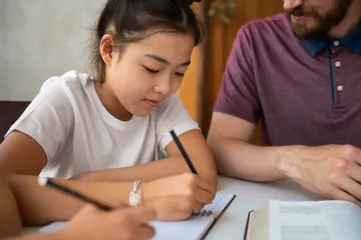College Readiness
College readiness encompasses the academic skills, executive functioning abilities, self-advocacy capabilities, and life skills teens need to successfully transition to and thrive in college.
Why preparation predicts success
Research on college retention shows that academic preparation alone doesn't predict success. Studies indicate that executive function skills, self-regulation, and help-seeking behavior are stronger predictors of college GPA and graduation than high school grades or SAT scores.
The transition to college represents one of the largest increases in executive function demands most teens face. Students who develop these skills during high school show better adjustment, lower anxiety, and higher retention rates. Conversely, students arriving at college without independence skills show higher rates of anxiety, depression, and academic failure despite strong high school performance.
Conley (2014) identifies four key dimensions of college readiness: cognitive strategies, content knowledge, learning skills, and transition knowledge. Robbins et al. (2006) found that psychosocial factors like motivation and self-regulation predict college outcomes as strongly as traditional academic measures.
You're not alone
If you're worried your straight-A student can't wake up independently or your teen has never done laundry, you're recognizing the college readiness gap. Many parents realize too late that they've managed so much for their teens that essential life skills never developed. The pressure to maintain high GPAs often overshadows preparation for independence. Families actively building college readiness skills report smoother transitions and better freshman year outcomes than those focusing solely on admissions.
What it looks like day to day
Student
Your teen practices emailing teachers about missing assignments rather than having you intervene, building communication skills needed for professor interactions.
Parent
You step back from daily homework reminders, letting your teen experience natural consequences while still in high school's supportive environment.
Tiny steps to try
Build college readiness through gradual independence and skill development.
- 1
Phase out management
Gradually transfer responsibility for schedules, deadlines, and daily tasks. Start with one area, mastering before adding more.
- 2
Life skills rotation
Teach one practical skill monthly: laundry, cooking basics, budget tracking. Practice while support is available.
- 3
Self-advocacy practice
Have your teen handle their own academic issues, teacher communications, and appointment scheduling. Coach but don't rescue.
- 4
Study skill development
[Note-taking strategies](/the-parent-bit/study-skills-for-high-schoolers-mastering-note-taking) and time management matter more than parent-managed perfection.
- 5
Failure tolerance
Allow safe failures now rather than protecting until college. Recovery skills need practice with support available.
Why college readiness goes beyond grades
Many academically successful teens struggle in college because readiness involves far more than GPA and test scores.
Essential college readiness skills:
• Time management without parental reminders
• Self-advocacy with professors and administration
• Independent study and learning skills
• Daily living skills like laundry and budgeting
• Emotional regulation and stress management
• Social navigation and boundary setting
Without these skills, even brilliant students may struggle with college's independence demands.
References
Conley, D. T. (2014). Getting ready for college, careers, and the Common Core: What every educator needs to know. Jossey-Bass.
Robbins, S. B., Allen, J., Casillas, A., Peterson, C. H., & Le, H. (2006). Unraveling the differential effects of motivational and skills, social, and self-management measures from traditional predictors of college outcomes. Journal of Educational Psychology, 98(3), 598-616.
Ready to help your teen thrive?
Get personalized 1-on-1 coaching to build better habits and boost grades. Join 10,000+ families who trust Coachbit.
Frequently Asked Questions
Should we prioritize grades or life skills?
Both matter, but life skills enable academic success. A student who can manage time, seek help, and handle stress will ultimately perform better than one with perfect grades but no independence skills. If you must choose, basic life competence trumps academic perfection. Many colleges offer academic support, but they assume basic self-management abilities.
When should we start college readiness preparation?
Start freshman year of high school with small steps, increasing each year. Freshman year: basic organization and study skills. Sophomore: increased academic independence. Junior: life skills and self-advocacy. Senior: full independence with safety net. Starting earlier allows gradual development without senior year panic. However, it's never too late to begin building skills.
Related Terms
College Transition
College transition is the complex process of moving from high school's structured environment to college's independence, requiring academic, social, emotional, and practical adjustments.
Self-Advocacy
Self-advocacy is the ability to understand your needs, communicate them clearly to others, and take action to get appropriate support or accommodations.
Study Skills
Study skills are the strategies and techniques that help students learn effectively, retain information, and perform well academically.
Related Articles

Study Skills for High Schoolers – Mastering Note-Taking
Study strategies are vital to supporting high schoolers in their learning. Organized note-taking can provided a deeper understanding of subject material.
Read article
3 Ways an Executive Functioning Coach Can Help Your Child
Discover why executive functioning skills are crucial for your child's success. Learn how an executive functioning coach can make a difference
Read article
4 Healthy Habits To Set Your Teen Up For Life
Set your teen up for life with 4 healthy habits. Quality sleep, digital wellbeing, balanced scheduling, and stress management for a successful future!
Read article
